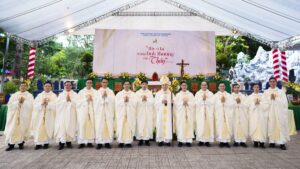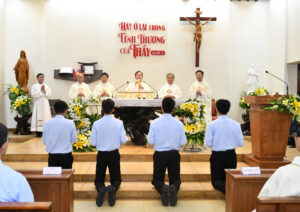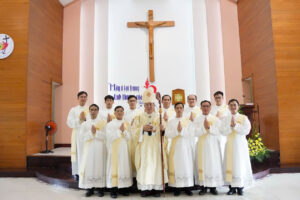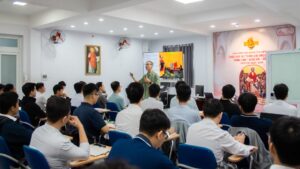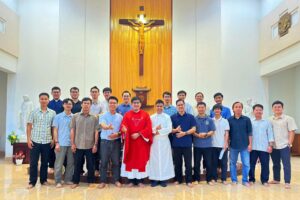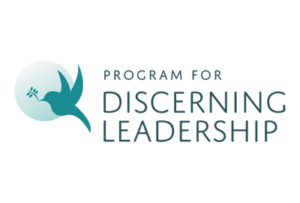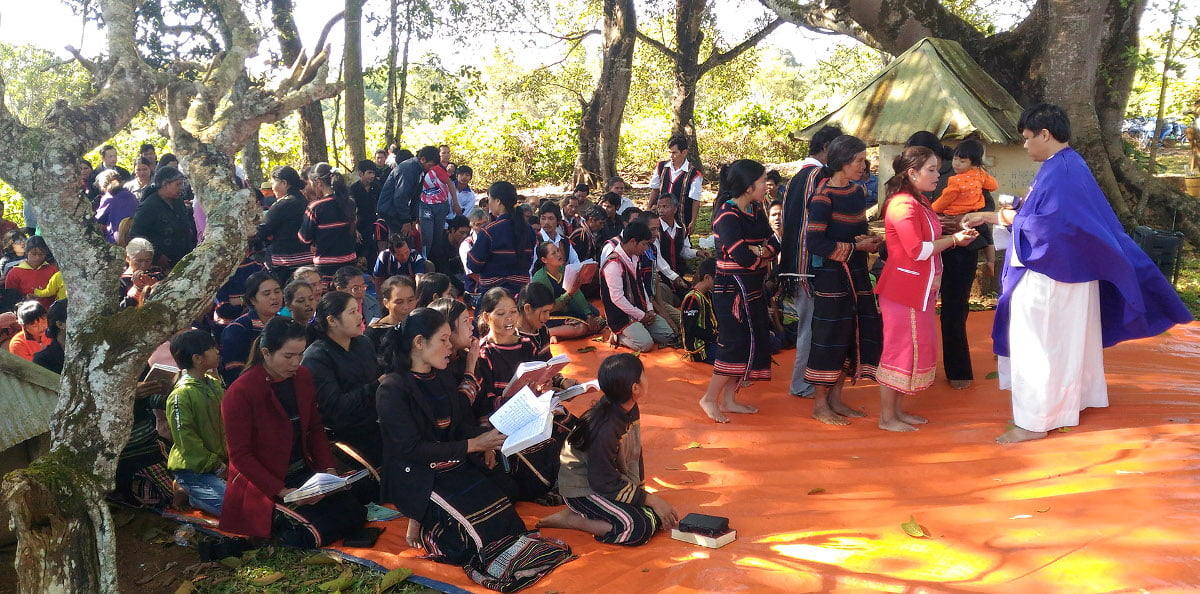 Pleiku is a region of Vietnam that tourists never visit, a mountainous territory in the centre of the country home to an indigenous population made up of 54 ethnic groups. These people speak a language very different from Vietnamese. Their homes, their clothes and in fact everything contributes to their marginalisation. It is in this context that Fr Ngô Phan Dinh Phuc, a Jesuit, became a “handyman”. He offers social services as well as pastoral services. Let us hear how he views his ministry.
Pleiku is a region of Vietnam that tourists never visit, a mountainous territory in the centre of the country home to an indigenous population made up of 54 ethnic groups. These people speak a language very different from Vietnamese. Their homes, their clothes and in fact everything contributes to their marginalisation. It is in this context that Fr Ngô Phan Dinh Phuc, a Jesuit, became a “handyman”. He offers social services as well as pastoral services. Let us hear how he views his ministry.


